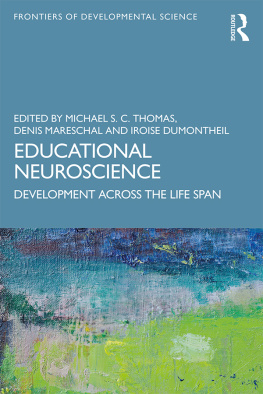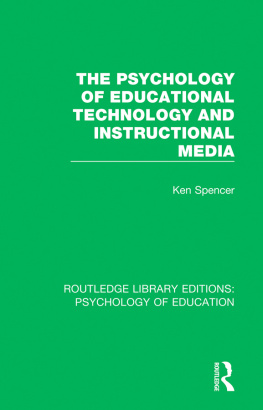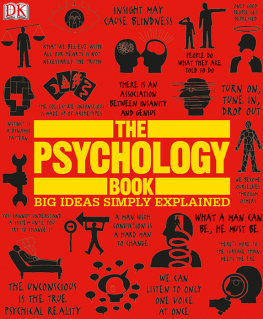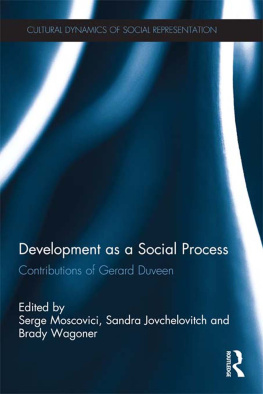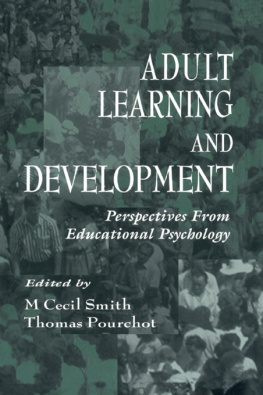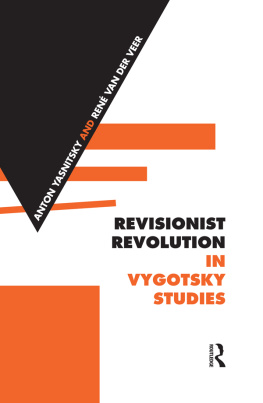Vygotskiĭ Lev Semenovich - Vygotskys Developmental and Educational Psychology
Here you can read online Vygotskiĭ Lev Semenovich - Vygotskys Developmental and Educational Psychology full text of the book (entire story) in english for free. Download pdf and epub, get meaning, cover and reviews about this ebook. City: Hove, year: 2013, publisher: Taylor & Francis;Psychology Press, genre: Religion. Description of the work, (preface) as well as reviews are available. Best literature library LitArk.com created for fans of good reading and offers a wide selection of genres:
Romance novel
Science fiction
Adventure
Detective
Science
History
Home and family
Prose
Art
Politics
Computer
Non-fiction
Religion
Business
Children
Humor
Choose a favorite category and find really read worthwhile books. Enjoy immersion in the world of imagination, feel the emotions of the characters or learn something new for yourself, make an fascinating discovery.

- Book:Vygotskys Developmental and Educational Psychology
- Author:
- Publisher:Taylor & Francis;Psychology Press
- Genre:
- Year:2013
- City:Hove
- Rating:4 / 5
- Favourites:Add to favourites
- Your mark:
- 80
- 1
- 2
- 3
- 4
- 5
Vygotskys Developmental and Educational Psychology: summary, description and annotation
We offer to read an annotation, description, summary or preface (depends on what the author of the book "Vygotskys Developmental and Educational Psychology" wrote himself). If you haven't found the necessary information about the book — write in the comments, we will try to find it.
Vygotskys Developmental and Educational Psychology — read online for free the complete book (whole text) full work
Below is the text of the book, divided by pages. System saving the place of the last page read, allows you to conveniently read the book "Vygotskys Developmental and Educational Psychology" online for free, without having to search again every time where you left off. Put a bookmark, and you can go to the page where you finished reading at any time.
Font size:
Interval:
Bookmark:
Vygotskys Developmental and Educational Psychology
Lev Vygotsky (18961934) was one of the most significant and influential psychologists of the twentieth century. Nevertheless, true appreciation of his theories has been hindered by a lack of understanding of the background to his thought.
Vygotskys Developmental and Educational Psychology aims to demonstrate how we can come to a new and original understanding of Vygotskys theories through knowledge of their cultural, philosophical and historical context. Beginning with the main philosophical influences of Marxist and Hegelian thought, this book leads the reader through Vygotskys life and the development of his thought. Central areas covered include:
The child
Motivation and cognition
The relevance of Vygotskys theories to current research in developmental psychology.
This comprehensive survey of Vygotskys thought will prove an invaluable resource for those studying developmental psychology or education.
Peter E. Langford is a freelance psychologist, previously affiliated to Birkbeck College, University of London, the University of Tasmania, and La Trobe University, Australia.


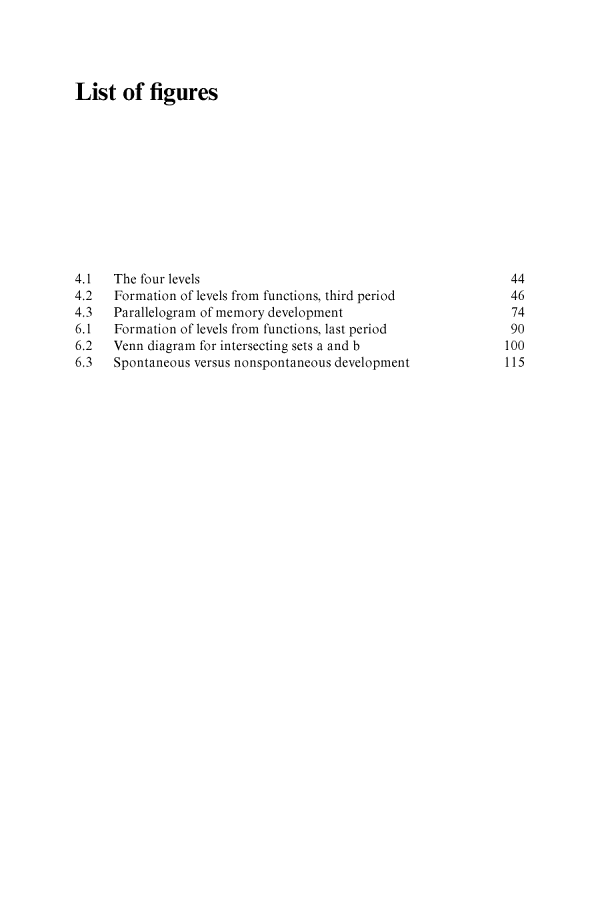
Acknowledgements
I should thank the Psychology Department of the University of Tasmania for giving me time to pursue this research while on its staff. Some of my deepest debts are to the Psychology Press readers who provided invaluable advice on both the content and presentation of the book, particularly to Professor Elizabeth Robinson. Naturally, the remaining defects are my own responsibility.
I would also like to thank the librarians and staff of the following institutions for their unfailing helpfulness and courtesy. In Russia: Moscow State Library and East View, Moscow. In the UK: the British Library, Senate House Library, University of London and the Library of the School of Oriental and African Studies, University of London. In the USA: East View, New Jersey and Document Express, Stanford, CA. In Australia: the libraries of the University of Tasmania and La Trobe, Melbourne and Monash Universities and the State Library of Victoria.
Introduction
The reaction on labour and speech of the development of the brain and its attendant senses, of the increasing clarity of consciousness, power of abstraction and of conclusion, gave both labour and speech an ever-renewed impulse to further development. This development did not reach its conclusion when man finally became distinct from the ape, but on the whole made further powerful progress, its degree and direction varying among different peoples and at different times, and here and there even being interrupted by local or temporary regression.
(Engels, 1896)
This book is about L. S. Vygotsky, who, with Pavlov, was the most famous and influential Russian, or, strictly, Byelorussian, psychologist of the twentieth century. His influence has also tended to increase in the last 25 years, even though he died in 1934. However, introducing him is notoriously difficult, because there are a number of conflicting views about what his message was, as well as about what its merits were. This introduction outlines my interpretation of Vygotsky. A review of some other approaches to him is given in Chapter 8.
It was central to Vygotskys work that he began from principles that he found in Marx to build a form of Marxist psychology. Today, for many in the West and elsewhere, this may lead to the conclusion that he built on foundations of sand and the whole edifice is probably both unstable and undesirable. However, Vygotsky built on some of Marxs principles, not all of them. So, in thinking about Vygotskys Marxism, we need to think of some modified and extended aspects of Marxism, not about classical Marxism as a whole. Some of these are also aspects that Marxism has in common with some versions of the liberal philosophy of history (see Chapter 14).
Vygotsky: an interpretation
Vygotskys development went through several periods. During 191820, he was committed to what was then called reflexology, in the Soviet Union. This was similar to Western behaviourism, in that it argued that all human behaviour can be reduced to conditioned reflexes, but differed in giving attention to the physiology of such reflexes, as well as to behaviour. For the entire period 192127, he was engaged in moving away from this outlook, which proved a difficult task. Nearly all those who had, like him, set out to build a Marxist psychology in the Soviet Union, in this period, were committed to reflexology (most significantly Bekhterev, 1921, 1926a, 1926b) or to halfwayhouse versions, lying between it and Vygotskys last ideas. A good example of the latter was Kornilov, the head of the key Moscow Institute of Psychology from 1924 to 1930, under whom Vygotsky worked in that period. This atmosphere seems to have slowed his move away from reflexology.
Vygotsky became a Marxist, in a general sense, shortly after the end of the First World War, but it was not until after 1920 that he began to think that Marxists should develop a special kind of psychology. From around 1928, he adopted several ideas about the construction of a Marxist psychology that marked a radical break with his previous thinking on the topic. He took from Marx and Engels two main items: Their theory that the historical development of the individual is determined by their role in the historical development of production; and the challenge they posed to somehow connect the historical development of the individual with the development of the child (a challenge made explicit by Engels, 1886).
Vygotsky assumes that there are developmental tasks that exist in both the development of the species and individual development, but that these are met in different ways. For this reason we can talk about an underlying map of development that applies to both history and the individual. This is primarily a map of the individual as they exist inside a social system, not the asocial individual who appears, for instance, in Piagets approach to cognitive development.
The states of the developing social system are determined by three dimensions. The first is the levels of activity, that is to say the use of tools and practice, the social relations of work, signs and consciousness and the self. Signs here means anything that can communicate meaning, such as gestures, speech or writing. The first two of these levels show little consciousness, while as we move from these to the last, consciousness increases. The next dimension is motivation; the third is the relation between the inner and the outer, the main example of which is the relation between the inner and outer selves. The primary dimensions of developmental advance are the first two.
Each of the levels of activity contains four steps, ranging from least to most developed. Tools and practice, for instance, develop from the use of tools based on the human body and designed by imagination, to the scientific construction of machines based on abstract scientific concepts, with two steps in between these extremes. The development of motivation contains five steps. Four correspond to the steps in the levels, but there is an additional first step in infancy, before the levels appear, which is the appearance of the distinction between means and goals. The dimension of inner versus outer contains only two steps, as it only applies to the last two periods of development (after 7 years of age).
Font size:
Interval:
Bookmark:
Similar books «Vygotskys Developmental and Educational Psychology»
Look at similar books to Vygotskys Developmental and Educational Psychology. We have selected literature similar in name and meaning in the hope of providing readers with more options to find new, interesting, not yet read works.
Discussion, reviews of the book Vygotskys Developmental and Educational Psychology and just readers' own opinions. Leave your comments, write what you think about the work, its meaning or the main characters. Specify what exactly you liked and what you didn't like, and why you think so.

